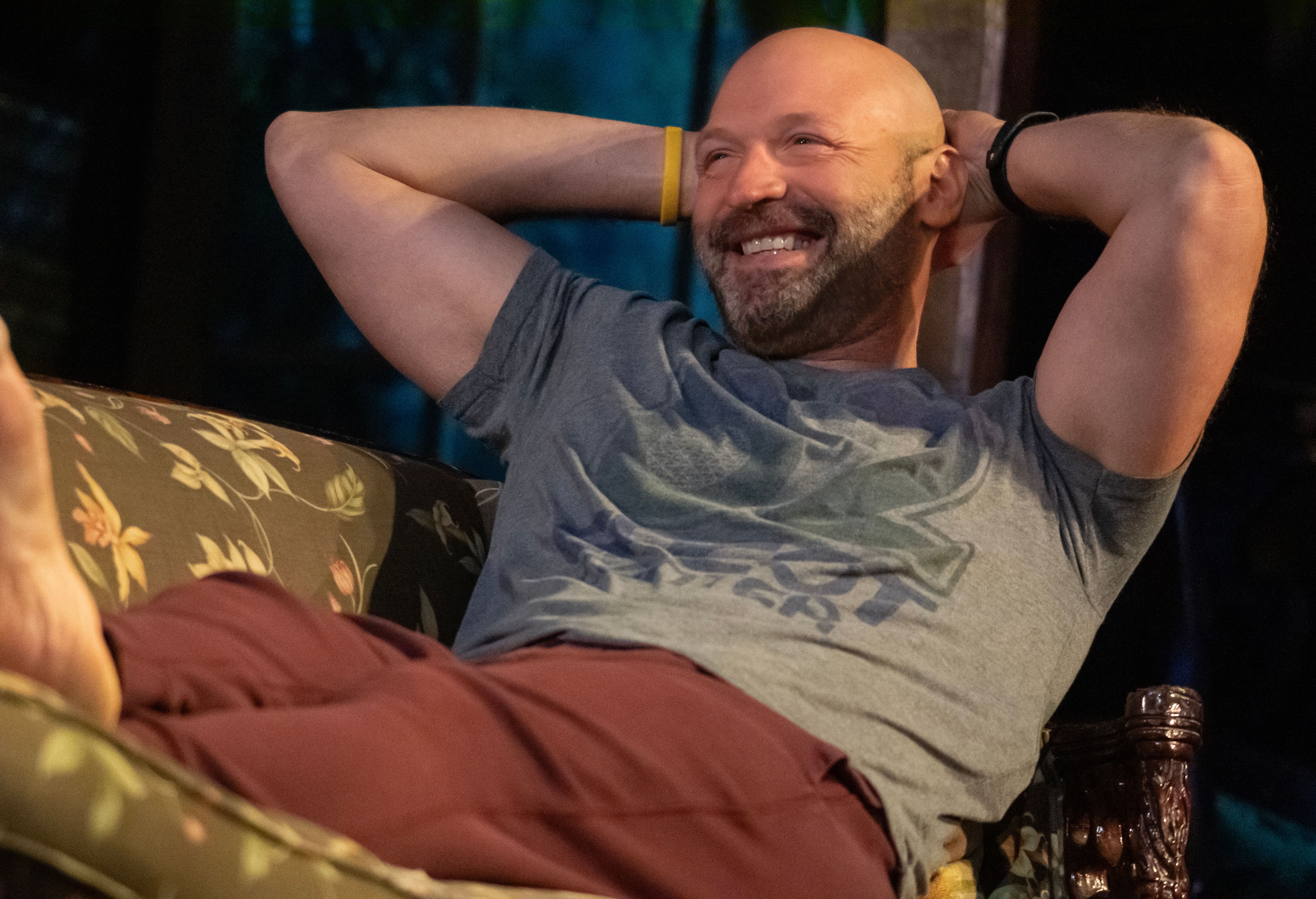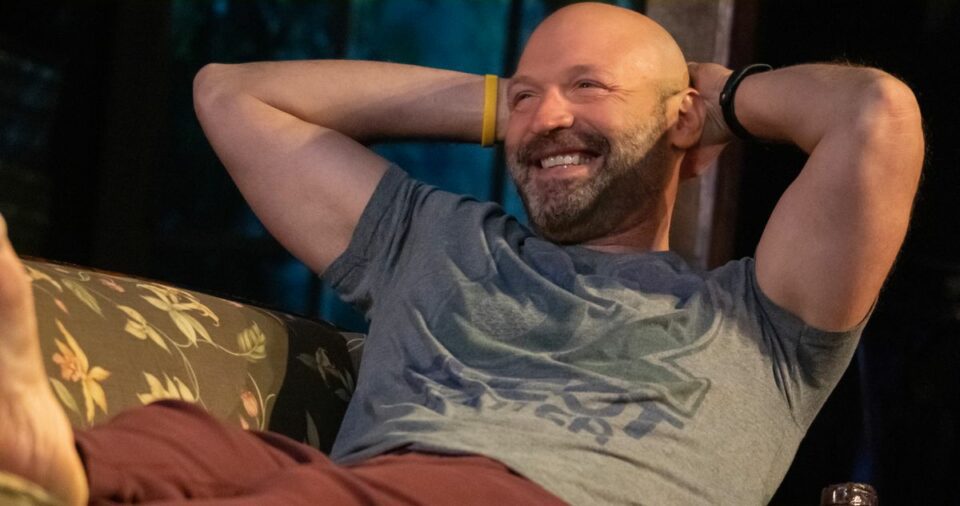[ad_1]

This season, Branden Jacobs-Jenkins’s Appropriate enters lineage of our great American shouting plays. The plot has a classic premise for yelling: three estranged siblings reunite to clean out their dead dad’s house ahead of an auction. In tow are their respective partners and children, who, like the audience, have no idea how much things are going to escalate. Same as Tennessee Williams and Tracy Letts before him, Jacobs-Jenkins, whose play premiered Off Broadway in 2013, uses family conflict to illuminate each family member’s personality and connected history: Franz (Michael Esper) is the youngest child and a fuckup who hasn’t been around, Toni (Sarah Paulson) is the oldest sister whose difficult life makes her start difficult conflicts, and Corey Stoll’s Bo — the classic middle child and New York dad, attempting to get through the week without losing too much money.
Bo and his wife Rachel (Natalie Gold) act as audience inserts, familiar to Broadway theatergoes the point where they seem to have a problem with them. The characters live in New York, they have the money to see a Broadway show, they want to seem cosmopolitan – if they’re doing something wrong, so are the people watching. Rachel, who is Jewish, blows up early in the play over her sister-in-law’s anti-Semitic comments, but Bo stays tightly wound. At the very end, he delivers a seismic shock of a monologue, bursting with resentment over how he, a white man, feels brought down by a world that hates his obvious privilege. It’s an angering yet recognizable watch, but when he ends the play in tears, he’s impossible to dismiss. “A real strength of the play,” Stoll says over coffee in Windsor Terrace, “is how people’s allegiances are constantly shifting.”
I’m curious how Appropriate hit you when you first read it. Did you take in the play overall or did Bo stand out?
When you get the email, this one said, “Read for interest for the part of Reese,” which is this young kid. It was clearly a typo. I was reading it and I was just like, I think I’m too old for that. But I was like, Okay, well maybe Frank. As the play went on, I was like, I’m clearly more of a Bo.
How do you know you’re more of a Bo?
I have a stable presence. A lot of the work I’ve done has an authority, or a gravitas — the men seem to have their shit together.
Do you think that a lot of your characters have a relationship to masculinity?
As a culture we’re confused about how we feel about masculinity. I embody that. I read as traditionally masculine: tall, bald, deep voice, and maybe subtler signifiers. But I’ve never been into sports or fishing and my best friends have always been women or girls. I have the presentation of a stereotypically manly person, but there’s a real part of me that doesn’t believe it. Anybody who is entirely masculine or feminine is probably suppressing something inside themselves, and that’s an interesting thing to dramatize.
Bo has a fight with his sister Toni about the fact that he spends the money on their father and she spends the time — that’s a classic husband-wife debate. Do you feel that in the scene?
Yes, definitely. It’s an interesting experience developing the role in rehearsal and then playing him. I spend a lot of time not talking in the play, especially in the first act. From the beginning, I am trying to control the situation, but it is out of my control. That manifests itself physically. During the performance, I was originally expending way too much energy. It almost felt like sleep paralysis. I was being attacked by Toni or criticized by Rachel and feeling a need to retaliate and control. But Branden Jacobs-Jenkins didn’t give me the words to do that, so it was a lot of pushing against a pull door. That’s what leads to the sort of explosion at the end.
You have a really interesting challenge here. People are blowing up around you for the entire first act, but it’s a long time before Bo gets to take center stage and shout. In a classic American family play, how do you make that dramatically interesting?
It’s an ensemble piece. What I’m doing on my own might not be that interesting if everybody on stage weren’t so perfectly cast and doing such a good job and so well-directed. A lot of what I say is exposition and talking about the state law and shit, but it’s all part of a piece. It’s all about telling the story of this family. It’s not the story of Bo, it’s not even the story of Toni. It’s about these three siblings and the next circle out in their families. If the play weren’t so strong and if everybody wasn’t so good, I might feel a need to be more interesting.
In rehearsal, I did a lot more. Lila gave me permission to be focused on maintaining the status quo. If there isn’t a force like that in the play, the centripetal force sends everybody flying.
I want to talk about Jewishness. You grew up Jewish, is that correct?
Not practicing at all. We would do the holidays, but I never went to Temple and I wasn’t bar mitzvah’d.
What do you think Bo’s relationship with Rachel’s Jewishness is like?
When we were towards the end of rehearsal, Branden said something like, “Of all the Ivy leagues, Yale is the most sort of in opposition to Southerness. Traditionally, Yale was just Yankee.” The fact that Bo went to Yale meant something to the family and to him. Bo pointedly turned his back to that world. There were a lot of reasons why he fell in love with Rachel, but her Jewishness was a part of that. There was something, culturally, about Northeastern, intellectual, and Jewish — it was all one thing. That was the world that he wanted to be a part of.
I found Bo’s relationship to his father to be the most unwieldy. Bo doesn’t give a speech about his father, and he doesn’t defend him at first as information comes out that his dad was probably racist — but he also doesn’t really attack him. It’s often dependent on who he’s with.
His father’s a real blind spot for him. He so identifies with him that he can’t see him. He instinctively turned his back to his father and his life, but I don’t think he ever consciously was able to differentiate himself.
There was a lot of unspoken, un-acted-out aggression towards his father. When Rachel had this unpleasant experience with his father, it was obviously very painful and he didn’t like that conflict. He took her side but never took that next step to confront his father. We’ll just separate and it’ll take care of itself.
He plays peacemaker a lot.
He’s not very good at it. He’s definitely the middle child.
One of the most valuable moments in the play is at the very end when Rachel expresses, This is not who I am normally. Who is Bo when he’s not around his family?
I don’t think he gets into fights. He’s — at least on the surface — an easy going guy. I think he was in a fraternity at school and he has his friends and he’s easy to work with. I get the sense that he’s a solid guy and he really values that. But I do think he’s of an age now where in that unexamined life, the cracks are starting to show up.
There’s a lot of tension in Appropriate, but you and Toni get the one moment where people get along as family. I love that scene.
Me too.
What does that feel like to play?
That was the scene that was rewritten the most — Branden was saying he never felt he’d gotten right in the writing, and it was a lot of work. There was one full week where every day he would come in with that scene completely rewritten. We’re really happy with the outcome.
What was changing?
I don’t think he really knew it until he found the shape, but the idea was that these are two people who are not trying to connect, who, the last time they saw each other, were fighting at this peak level, and not interested in reconciliation. And despite themselves, the gravitational pull of their history, their love for each other, and those memories brought them back into some sort of harmony.
Can you feel audiences rooting for specific characters from the stage?
Hugely, hugely.
I felt them rooting against you at the start.
I don’t know if that’s entirely true.
They clap the first time someone yells at you.
Those are people clapping because that’s what they want to say to their husbands. I show up and I say dismissive things in this sort of bossy male way, that, for some people, instantly makes me unlikable. But then they see the abuse that I’m getting from Toni and how I’m trying to tone things down and start to identify with me. And then I’ll say something awful.
The penultimate scene between me and Rachel — that was another one of the scenes that we did a lot of tweaking.
The one where they’re with the suitcases?
Yeah. I come in still sort of in denial — we want to know so badly and we want to put people into a box of “racist” or “not racist,” or “good” or “bad,” but Branden is constantly having to stress that we do not know. He’s constantly denying the audience that satisfaction. In that scene, Rachel has a line, “I think that’s a load of crap,” that would get applause. We worked so hard to kill that. Natalie has this beautiful release about how fucked up this whole situation is. And then, suddenly, it feels like I’m totally betraying her and siding with Toni. It’s a crazy 90 degree turn. and then another in the middle of that scene, and it’s satisfying to feel the audience feel superior to Bo and then be confronted with his humanity.
When you’re crying?
Even within that scene, they realize where that denial I’m in is coming from. I am confused. My saying “We don’t know” is not to paper over. It’s to save myself. My father was in the Ku Klux Klan? It’s just too much to take in. And yet, that’s what we all have to confront, whether we have that exact inheritance or not. You go far enough back in anybody’s history and there is evil. Those of us who have privilege get that privilege from evil. We are implicated. What you do about that is the problem of America.
The play comes so close to writing these people off. And then just when you think that’s going to happen, he becomes incredibly big hearted and there’s this incredible sense of empathy.
Bo and Rachel most mirror Broadway audiences. Bo and Rachel probably go see Appropriate, and they’re the only ones who do.
My character has several purposes in the play, but one is to have an entryway for at least some people in the audience. In some ways it gives me license to do less, because the audience will know who I am.
What’s the significance of the play being set in 2011 for your character?
When we were in rehearsal, I, in particular, was really like, How are we going to let the audience know that this is not 2024? It was my idea for my character to have a Livestrong bracelet and a Blackberry. We had a lot of discussions in rehearsal: Would these people behave in this way post-Black Lives Matter, post-George Floyd, post-Trump, post-pandemic? Once we were up and running, most people did not register that it was period at all, but it didn’t matter. It was pretty disappointing in some way to realize how little we’ve changed.
What in the play makes audiences uncomfortable?
When Rachel talks about antisemitism in this funny voice. When you’re first confronted with this, it’s hard because the audience is just getting on board. Depending on the audience, they either think Toni is hilarious, or they really, really hate her. And that can differ from night to night.
I saw the play during previews, and the crowd felt pro-Rachel. And then I went last week, and, not to stereotype my people, but there were a bunch of gay guys in the front two rows snapping for Toni.
I hate the snapping. We had a dress rehearsal with a lot of students and they would snap. Maybe I’m just out of touch, but I feel like it’s antithetical to the theater. It’s a signifier of belonging to a certain tribe — the whole point of dialogue is that you’re presenting different points of view, but neither one specifically the playwright’s. As an audience member, if you’re clinging on too much to the point that somebody said, I feel like you’re missing the point of the whole experience.
It’s a kudos.
It’s a self-soothing sort of instinct. There’s this conflict and if you can feel that there’s somebody “right” on stage, it’s going to be okay. It’s an instinct to go against conflict.
This story has been edited and condensed for clarity.
[ad_2]
By Jason P. Frank , 2024-04-05 16:00:46
Source link



